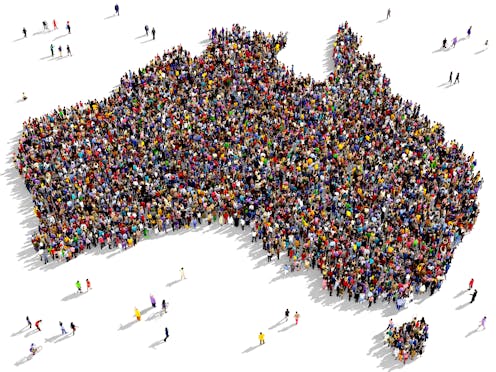Report finds ‘clear need’ for an Australian Human Rights Act. What difference would it make?
- Written by Bruce Chen, Senior Lecturer, Deakin Law School, Deakin University

This week, the Parliamentary Joint Committee on Human Rights reported[1] on its Inquiry into Australia’s Human Rights Framework. By majority, it recommended the federal government introduce an Australian Human Rights Act.
This represents a generational milestone to greatly improve human rights protections for Australia. It remains to be seen whether the federal government will accept this main recommendation, but is a significant development.
Where did it come from?
The inquiry was prompted by an earlier Free and Equal Inquiry[2] undertaken by the Australian Human Rights Commission. The first inquiry’s purpose was to conduct “a national conversation on human rights” and find out “what makes an effective system of human rights protection for 21st century Australia, and what steps Australia needs to take to get there”. This put the question of whether we should have an Australian Human Rights Act back on the political agenda.
After several years of engagement with the public and stakeholders, the commission concluded that introducing such an act was “strongly supported[3]”. It recommended a new national human rights framework with an Australian Human Rights Act as its “centrepiece[4]”.
Why an Australian Human Rights Act?
Human rights acts already exist in three states and territories – the Australian Capital Territory, Victoria and Queensland. There are many examples demonstrating how these acts protect human rights:
people with mental health illnesses are not forced to undergo electroconvulsive treatment, when they have the capacity to refuse
strip searches of prisoners[5] are to be carried out in a manner that respects dignity
human rights need to be properly considered when mandating COVID-19 vaccinations[6] for the police force
requests for independent investigations of alleged racist assaults by the police have to be properly considered.
It is time to build on these successes at the federal level.
The commission’s report described the current federal protection of human rights as “piecemeal” and “patchy”[7]. Over the past decade, the government and parliament have been required to consider human rights in the process of making laws.
However, this has not proven enough. The commission proposed an Australian Human Rights Act to fill the gaps. It would mean human rights considerations will also influence the government when it makes decisions and develops policies.
Every Australian deserves to have their human rights respected and protected, including at the federal level. This applies to aged care residents, social security recipients (such as those affected by the Robodebt scandal), people with a disability, and Aboriginal and Torres Strait Islander peoples. Access to human rights protection should not depend on where a person lives or which level of government carries the responsibility.
What did the parliamentary inquiry report say?
The report observed a “clear need” for a comprehensive and enforceable rights-based framework – to ensure a “fair go” for all. It agreed existing protections were “piecemeal”.
Submissions received overwhelmingly favoured (87%) an Australian Human Rights Act. The committee was reassured by the ACT, Victoria and Queensland experiences. It said these showed human rights legislation “could help embed a rights-respecting culture” and “has not led to overwhelming litigation”.
The report made 17 recommendations, including the enactment of an Australian Human Rights Act that broadly reflects the commission’s model. The act would protect rights based on those under international treaties to which Australia has agreed to be bound. This includes the right to freedom of religion and a prohibition against advocacy of national, racial or religious hatred.
The act would include basic aspects of economic, social and cultural rights, such as the rights to education, health and social security. The framing of cultural rights, and a right to a healthy environment, would be informed by consulting with Aboriginal and Torres Strait Islander peoples.
The act would impose a positive duty on public authorities to comply with and properly consider human rights in their decision-making and actions. They could still impose limits on human rights where parliament permits or where the limits are reasonable and justifiable.
The positive duty would be directly enforceable by a federal court, where conciliation is not appropriate. Courts would also need to interpret statutes so as not to breach human rights, so far as is reasonably possible.
The report recommended strengthening scrutiny by government and parliament of policy and legislation for compatibility with human rights. It also recommended extensive human rights education in schools and the broader community, in part to drive the cultural changes needed to fully realise rights.
By contrast, a minority of the committee recommended an Australian Human Rights Act not be introduced.
Where to next?
The recommendations are now with the federal government to consider and seek further advice. The report helpfully provides an example of what a human rights bill might look like, to promote understanding and discussion.
It is up to government to decide whether to accept the recommendations and, if so, for parliament to vote.
Securing an Australian Human Rights Act would demonstrate that Australia is a modern democratic nation that values fairness, transparency and accountability.
References
- ^ reported (www.aph.gov.au)
- ^ Free and Equal Inquiry (humanrights.gov.au)
- ^ strongly supported (humanrights.gov.au)
- ^ centrepiece (humanrights.gov.au)
- ^ strip searches of prisoners (theconversation.com)
- ^ mandating COVID-19 vaccinations (theconversation.com)
- ^ “piecemeal” and “patchy” (humanrights.gov.au)

















